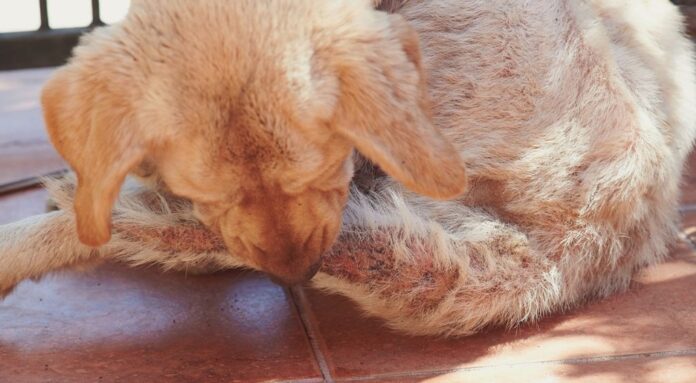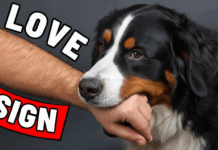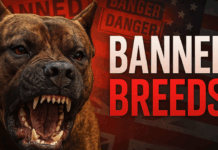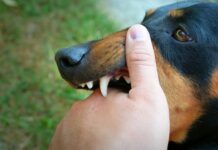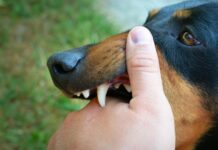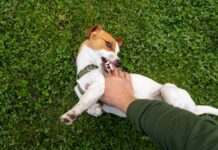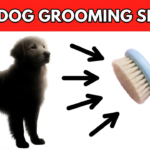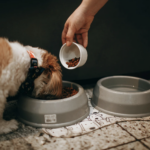Last Updated on August 1, 2024 by Dog Lover
Understanding Why Dogs Bite Themselves
Dogs often bite themselves to relieve an itch, but persistent biting can indicate health issues.
Dogs may bite, lick, or chew their skin due to mild irritation, but continuous biting suggests a more serious problem.
In this article, we’ll explore the reasons behind dogs biting themselves and provide tips on how you can help your furry friend.
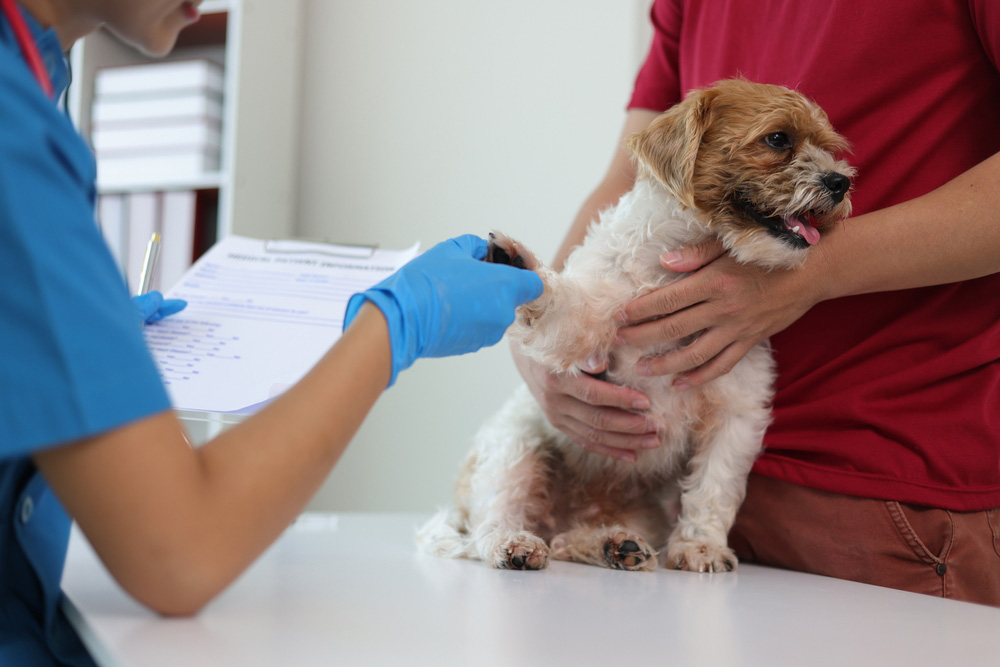
6 Reasons Dogs Bite Themselves
1. Dry Skin
Dry skin is a common reason dogs bite themselves. This condition causes itchiness, leading dogs to scratch, bite, or chew the affected area.
Signs include flaky, red, or inflamed skin, hair loss, and hot spots.
It’s often a symptom of an underlying issue, so a vet visit is essential to determine the cause and provide treatment.
2. Allergies
Allergies in dogs can cause itchy skin and lead to self-biting. Dogs may react to food, mold, pollen, or insect bites.
Along with itching, symptoms can include swelling, upset stomach, runny nose, and watery eyes.
Identifying the allergen and consulting a vet can help manage these symptoms.
3. Skin Infection
Skin infections from bacteria, fungi, or viruses can cause irritation, prompting dogs to bite themselves.
Common infections include staphylococcal infections, yeast dermatitis, and ringworm. Infections often appear red and inflamed, with lesions, flaky skin, or hair loss.
Vet consultation is crucial for proper diagnosis and treatment.
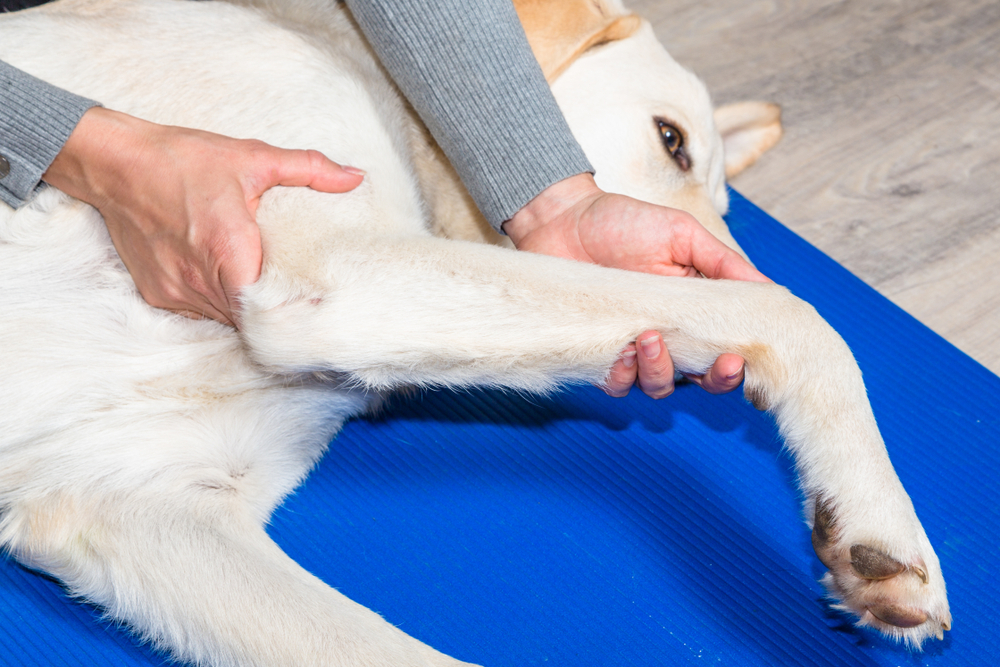
4. Parasites
Parasites like fleas, ticks, and mites cause itchiness and inflammation. Dogs may bite to alleviate discomfort.
Some dogs have allergic reactions to flea bites, worsening the itchiness.
A vet can recommend appropriate treatments to eliminate parasites and relieve your dog’s symptoms.
5. Arthritic Pain
Arthritic pain can lead dogs to lick or bite their joints. This behavior aims to soothe irritation but can result in skin issues like inflammation and hair loss.
Arthritis is more common in older dogs but can occur at any age. Symptoms include decreased activity, limping, and irritability.
6. Anxiety or Boredom
Anxiety or boredom can cause compulsive biting in dogs. They may engage in repetitive behaviors like excessive biting or licking due to stress or lack of stimulation.
Signs of anxiety include restlessness, pacing, barking, and accidents in the house. Providing mental and physical stimulation can help reduce this behavior.

What to Do If Your Dog Is Biting Themselves
Occasional biting is normal, but continuous biting suggests a medical concern. A vet visit is recommended if biting is repetitive or focused on one area.
A thorough exam can determine the cause and help you provide the right treatment for your dog.
Preventing Your Dog From Biting Themselves
Consistent biting can worsen skin conditions. Follow your vet’s treatment plan thoroughly. It may include topical ointments and medicated shampoos with antiseptic, soothing, or moisturizing ingredients.
Keeping your dog occupied after applying treatments can prevent them from licking the medication off. In some cases, using an e-collar may be necessary.
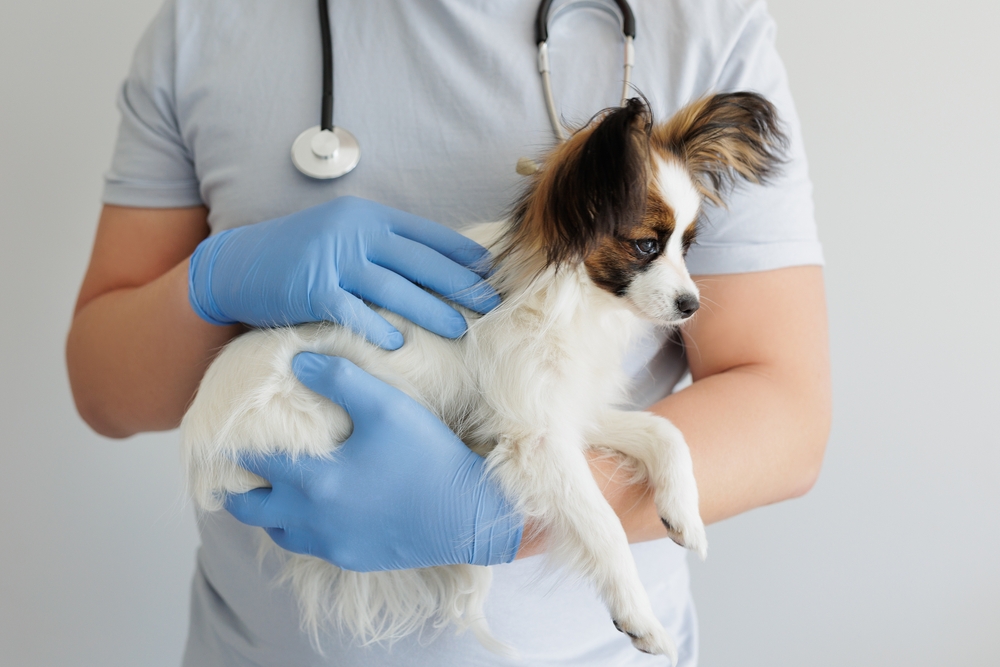
Conclusion
If your dog persistently bites themselves, consult your vet to address potential underlying issues. Identifying the cause and preventing further biting will help your dog’s skin heal and avoid complications.
Proper treatment can alleviate itchiness and keep your dog’s skin healthy.
FAQs
Why does my dog keep biting itself?
Dogs often bite themselves to relieve itchiness, which can be caused by allergies, dry skin, parasites, or skin infections. It’s essential to consult a vet if the behavior persists to rule out underlying health issues.
How can I stop my dog from biting itself?
To prevent your dog from biting itself, ensure they receive appropriate treatment from a veterinarian. Follow the vet’s instructions for medications, such as topical ointments, and keep your dog occupied after application. An e-collar may also help prevent further irritation.
Are there home remedies for a dog’s itchy skin?
While some home remedies like oatmeal baths or coconut oil can provide temporary relief, it’s best to consult with a vet for proper diagnosis and treatment. Home remedies might not address the underlying cause and could potentially worsen the condition.
Can anxiety cause dogs to bite themselves?
Yes, anxiety or boredom can lead to compulsive biting in dogs. Providing mental and physical stimulation, along with a consistent routine, can help alleviate anxiety-related behaviors. Consult a vet for additional guidance if anxiety persists.
When should I take my dog to the vet for self-biting?
You should take your dog to the vet if they engage in continuous or repetitive biting, especially if it’s directed at a specific area. A vet can perform a thorough examination to diagnose and treat any underlying conditions.
Sources
VCA Animal Hospitals
Willoughby Veterinary Hospital
Glyde
WebMD
AKC
